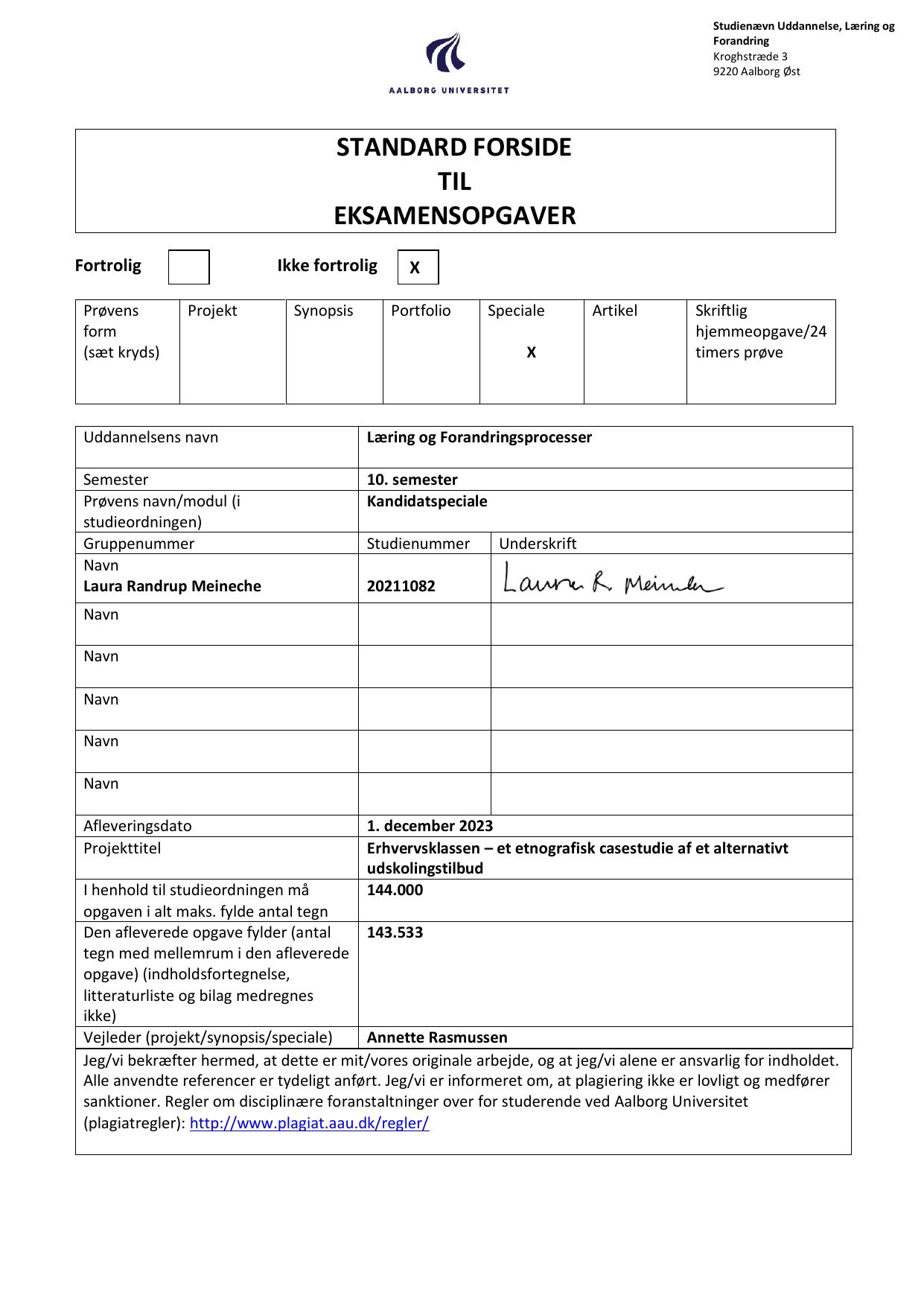
Erhvervsklassen - Et etnografisk casestudie af et alternativt udskolingstilbud
Oversat titel
Erhvervsklassen - An etnographic casestudy of an alternative lower secondary school
Forfatter
Semester
4. semester
Uddannelse
Udgivelsesår
2023
Afleveret
2023-11-30
Antal sider
77
Abstract
An increasing number of young people in Denmark are experiencing a decline in their well-being and, unfortunately, it is observed that these young individuals, when they are not thriving, face greater difficulties in completing their education. This is in contradiction with the current political objective of Danish government to eliminate the number of people who are NEET by getting 90% of young people under the age of 25 to complete their education, and the remaining 10% being connected to the labor market (Børne- og Undervisningsministeriet, 2023). Therefore, solutions are needed to enhance the opportunities for young people to obtain an education and/or connect with the labor market, even in cases where they are in vulnerable positions. In educational policy and research on the subject, the focus is often on the prospects of young people after primary school. However, the problem lies in the fact that the decline in well-being, dropout rate, and poor academic performance typically begin in primary school. Therefore, this thesis aims, through an ethnographic case study in a lower secondary school program called Erhvervsklassen, to examine the relevance of increasing the education opportunities for youth at risk during their years in primary education. Through observations, interviews, and document analysis in Erhvervsklassen, the thesis uncovers the intentions of Erhvervsklassen's educational staff regarding the academic and general development of students, how these intentions translate into practice, and how they affect the students' opportunities for further education. The educational staff intends for the students to experience well-being and success in attending school in order to have positive school experiences and creates a desire to pursue further education. Additionally, the educational staff aims to make the students adaptable to adulthood and social life, which they achieve through a practice-orientated class that emphasizes relationships, community, and development of general skills. Furthermore, the students in Erhvervsklassen participate in internships in local companies, contributing to their socialization and aiding in the clarification regarding the decision about their future education. Often, these internships lead to securing apprenticeships, granting students access to the vocational education. The educational staff also intends for the students to pass the FSA, thereby ensuring access to all types of upper-secondary education. Based on John Dewey's theory of experiential education and Peter Berger & Thomas Luckmann's theory of socialization, the educational practices of the staff have a positive impact on the students' opportunities for further education. Thus, it is relevant to conduct a more comprehensive study to determine whether the educational offering, such as Erhvervsklassen, should be extended to more youth at risk with the aim of reducing the number of people who are NEET while also decreasing the number of young people experiencing reduced well-being.
Emneord
